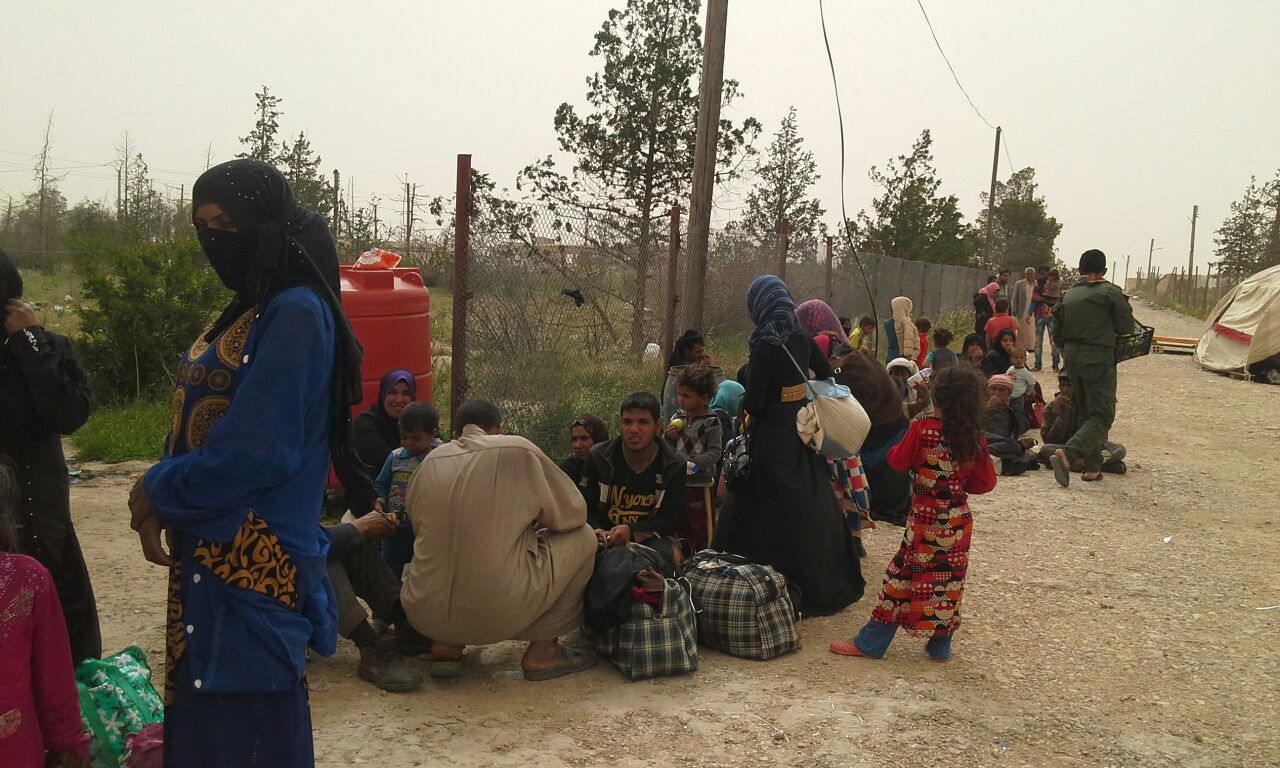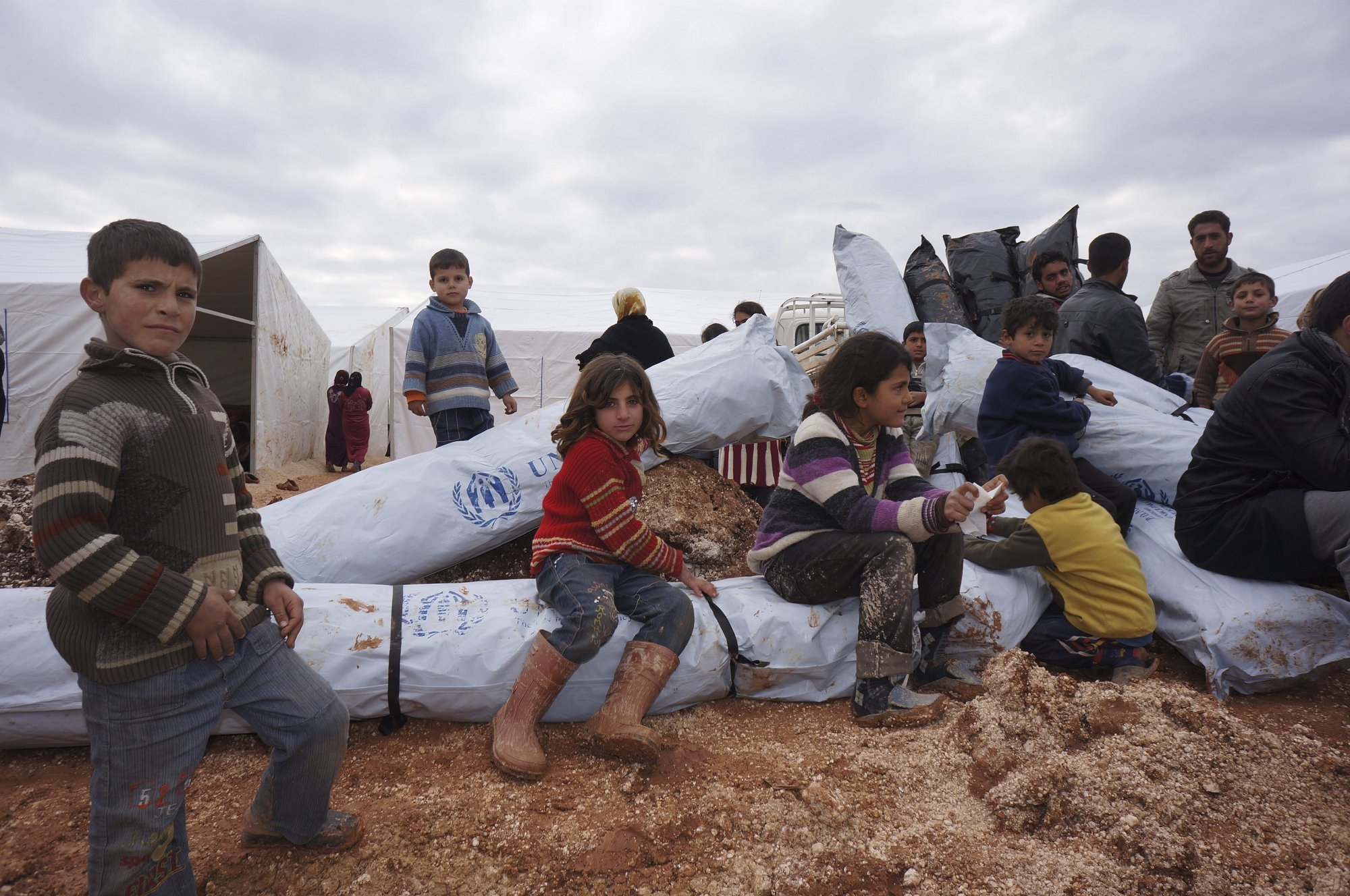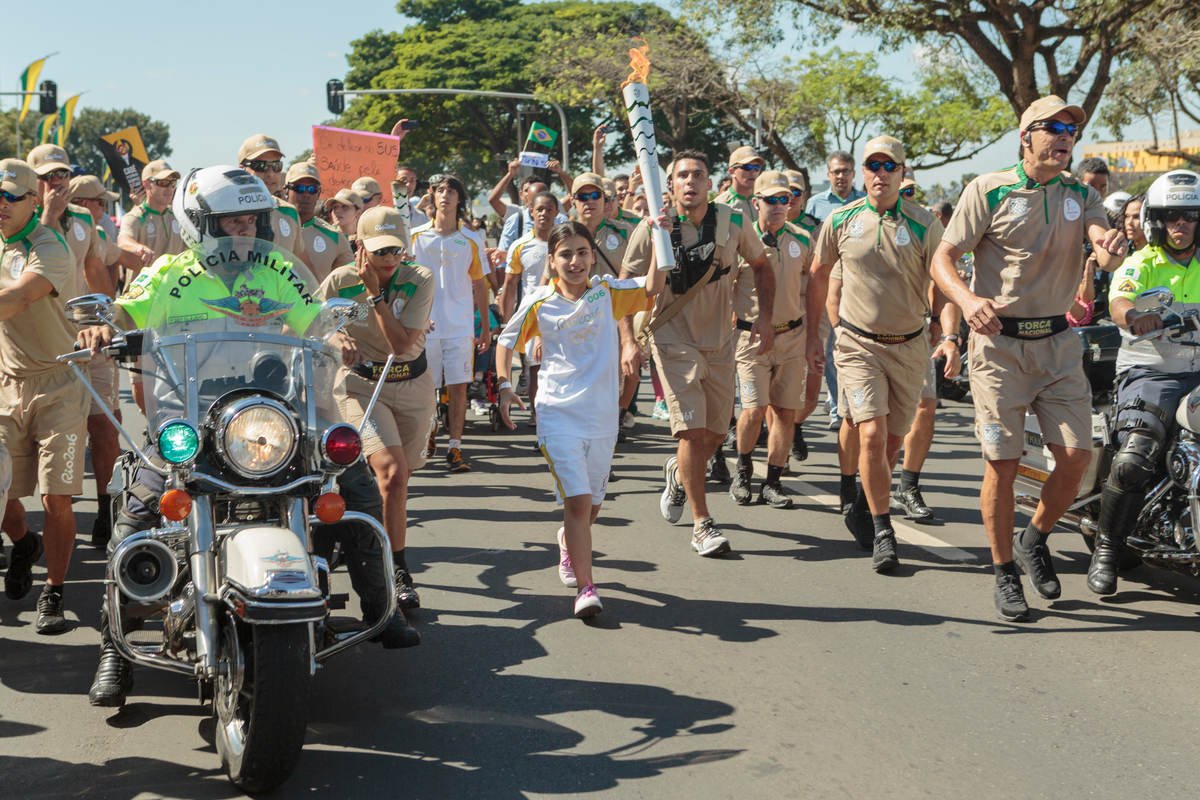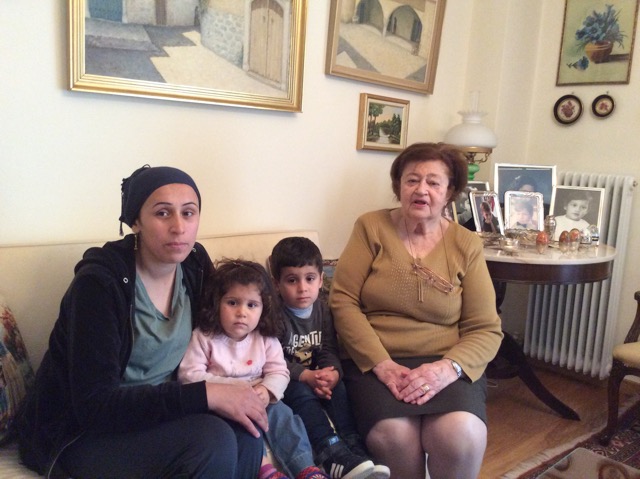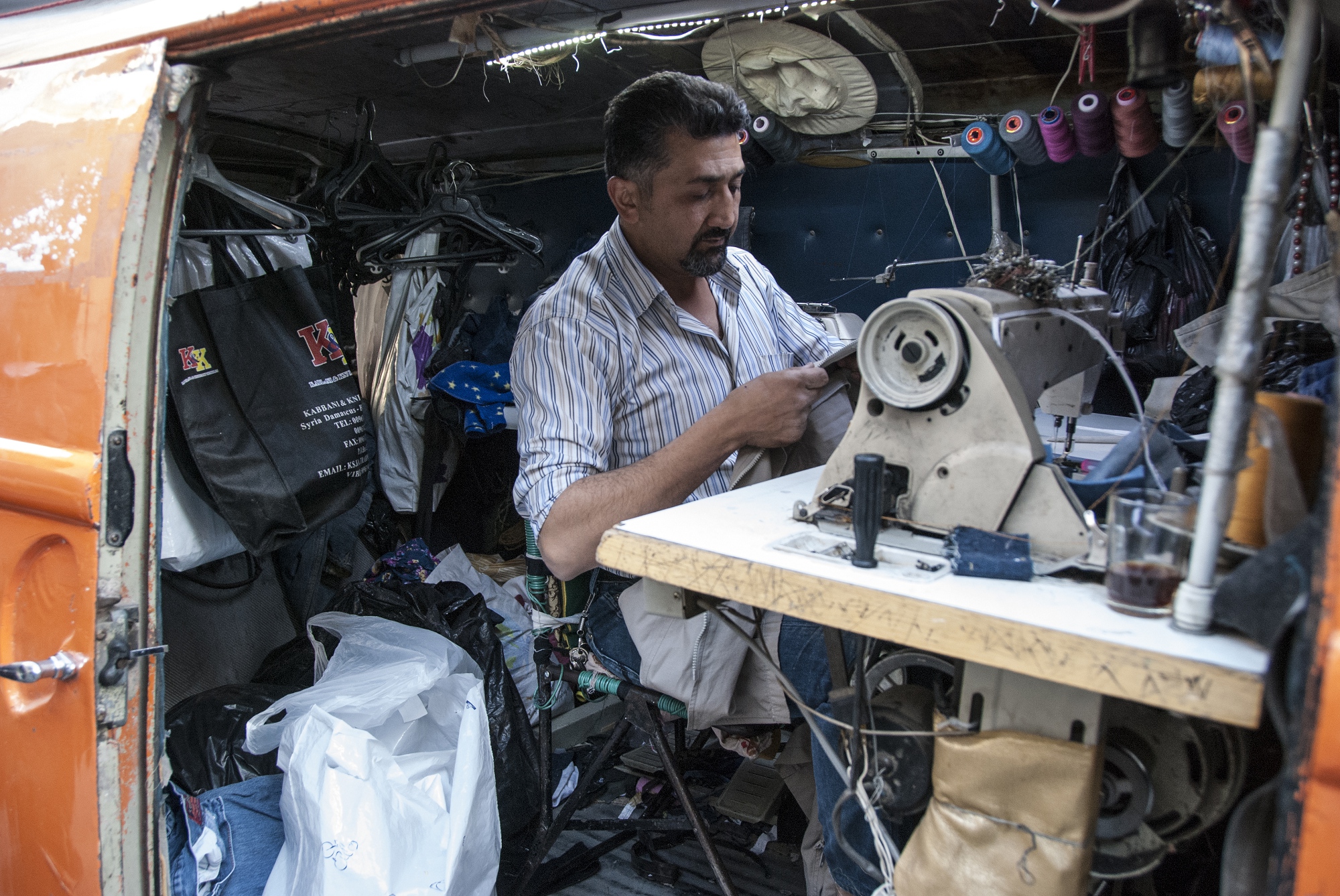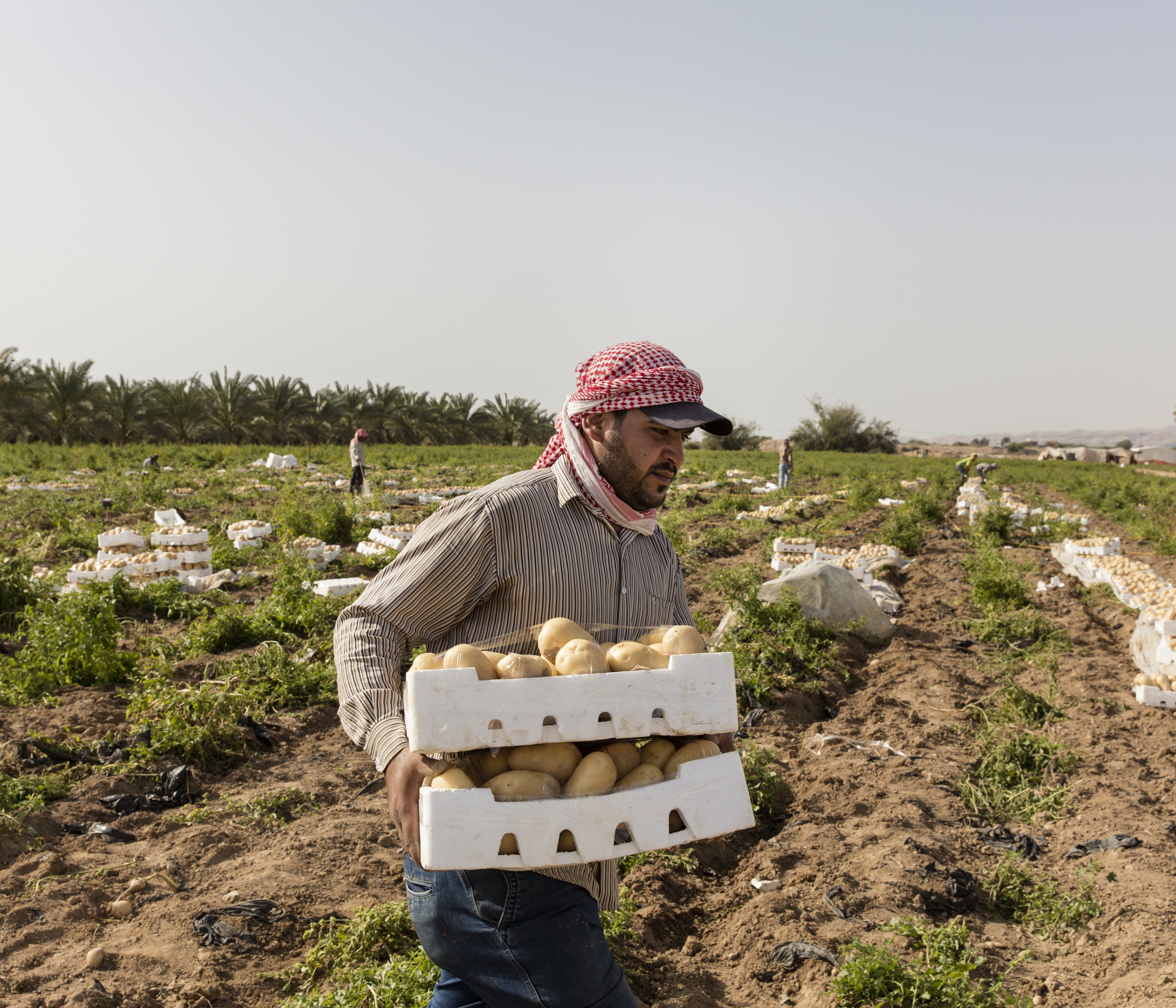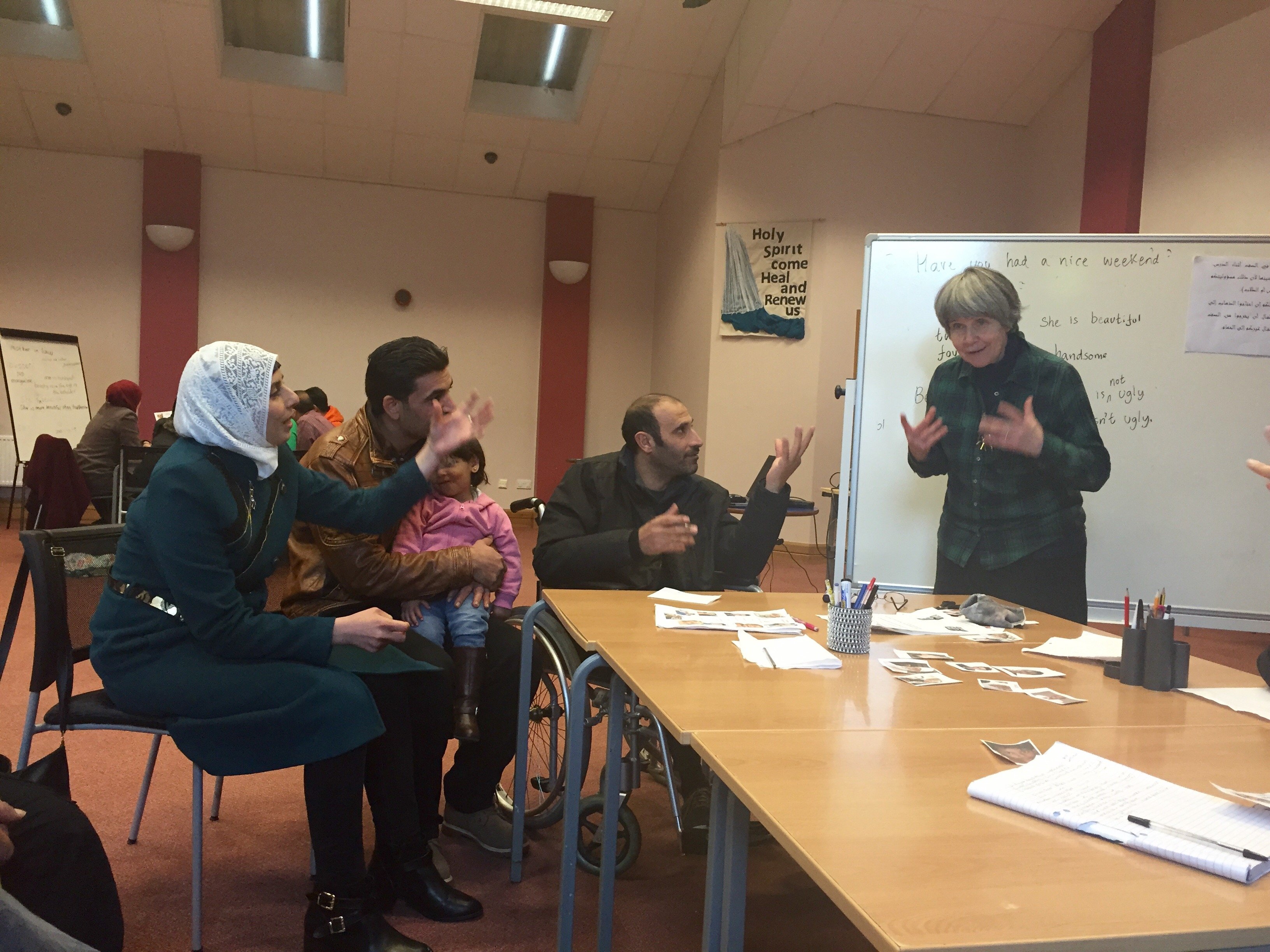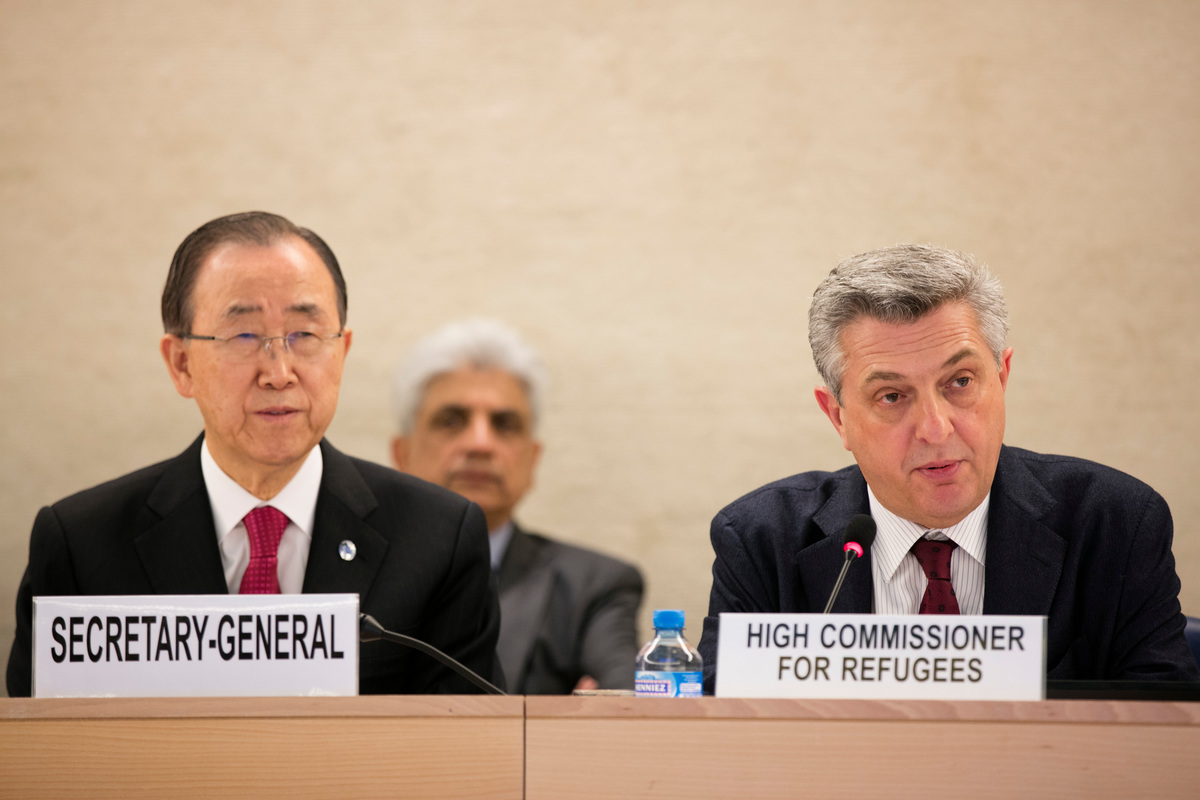Syrian refugee children prepare to start school, Iraq opens border crossing
Syrian refugee children prepare to start school, Iraq opens border crossing

GENEVA, September 21 (UNHCR) - With the new academic year approaching, hundreds of Syrian refugee children in Lebanon, Iraq and Jordan have been registering to start school in state schools or camps.
In a separate development, the Iraq government on Tuesday reopened the border crossing at Al Qaem for Syrian refugees. The new arrivals are directed to a new camp, set up nearby by the Ministry of Displacement and Migration with UNHCR's support. In anticipation of continued arrivals, land has been allocated in the area for a third camp.
A priority for many of the Syrian refugees in Iraq and other neighbouring countries is to ensure that their children can return to school, which some children have not attended for up to a year.
In Lebanon, UNHCR and partners are conducting a campaign aimed at the enrolment of 15,000 children in public schools. In the past two weeks, 1,608 refugee children have registered with public schools in north and east Lebanon.
More children are expected to register following a directive by the Education Ministry allowing all Syrian refugee students to enrol in Lebanese public schools. Remedial classes and accelerated learning programmes are under way, targeting Lebanese children and Syrian refugees. Transportation to schools is being provided for those in need.
The registration of children for the new school year is also under way in Iraq. A refugee committee in Domiz camp, close to Dohuk in northern Iraq, has conducted house-to-house visits to inform families about the registration process. Meanwhile, the UN Children's Fund (UNICEF) has set up seven tent classrooms for children in Al Qaem camp.
Syrian families in Jordan are also being encouraged this week to register their children. UNICEF expects some 2,000 students to start school when the academic year starts next week. More than half of the registered refugees in Jordan are of school age, or about 27,000 people.
In parallel, the Jordanian Ministry of Health, supported by UNICEF, is conducting a vaccination campaign in Za'atri refugee camp. Children are being vaccinated for measles and polio and given vitamin A. So far, some 4,500 children have been vaccinated against measles.
Meanwhile, significant progress has been made in Lebanon over the past week in relocating refugee families who have been living in schools. A total 106 out of 170 families who were living in schools set to reopen have been assisted to find alternative lodging, and solutions are being sought for the remainder.
Most have moved to rental accommodation, assisted with cash grants, while a few relocated to unused schools in the Bekaa Valley and others were welcomed by Lebanese families. While shelter remains in short supply, UNHCR continues to work closely with the authorities for approval of a range of options before the winter months. In the meantime, the rehabilitation of abandoned schools in which some families live and the renovating of host community houses continues.
Inside Syria itself, UNHCR teams continue to visit and help the internally displaced Syrians and refugees living in communal and private shelters in Damascus and surrounding areas. Since March, UNHCR relief items have been distributed, primarily through the Syrian Arab Red Crescent, to some 173,000 people.
On Wednesday, more than 2,000 blankets were delivered in the north-eastern city of al Hassakeh as the winter approaches. Other pressing needs of Syrians include food, mattresses and sanitation improvements in communal shelters, which often lack adequate shower facilities.
In Al Nabek, located between Damascus and Homs, UNHCR's cash assistance programme has so far reached more than 2,200 Syrian families in need (amounting to close to US$350,000 distributed).
Refugees and Syrians continue to approach UNHCR's office in the capital, Damascus, to ask about food distribution and material assistance as well as for counselling, including psychosocial support. Last week, UNHCR's psychosocial team and outreach volunteers followed up on three attempted suicide cases, including two involving minors.
In Turkey, all Syrians who were accommodated in schools have now been transferred to the 12 camps now in operation. Some 27,000 Syrians were previously accommodated in schools. In the last week, some 2,000 Syrians voluntarily returned to Syria from two camps in Sanliurfa. The new camps have schools for educating the Syrian children.
Two new camps in Kahramanmaras and Osmaniye are now operational and four more are being prepared. When all are complete, Turkey will have the capacity to host 130,000 people.
There are now almost 73,000 Syrian refugees either registered or waiting to be registered in Lebanon, some 29,000 in Iraq, more than 92,000 in Jordan, where more than 4,000 Syrians arrived last week, and about 83,260 in Turkey.

